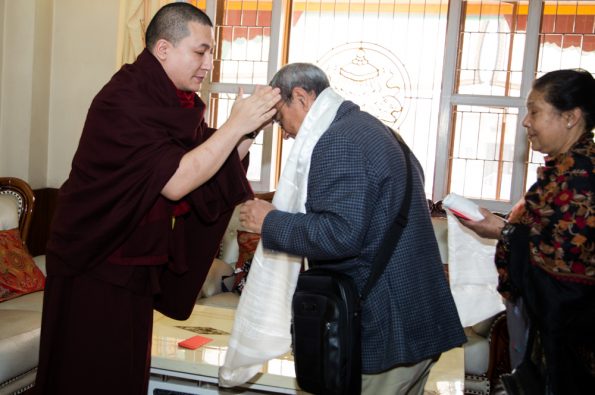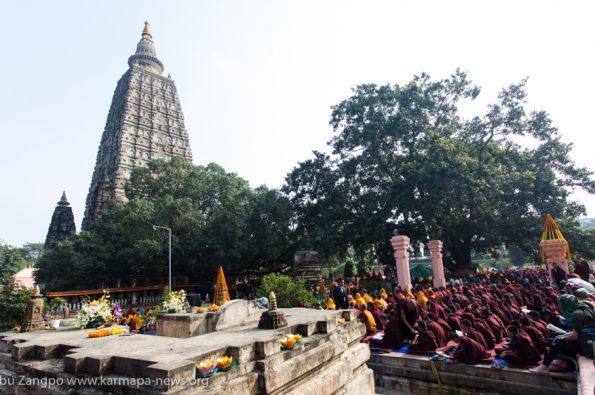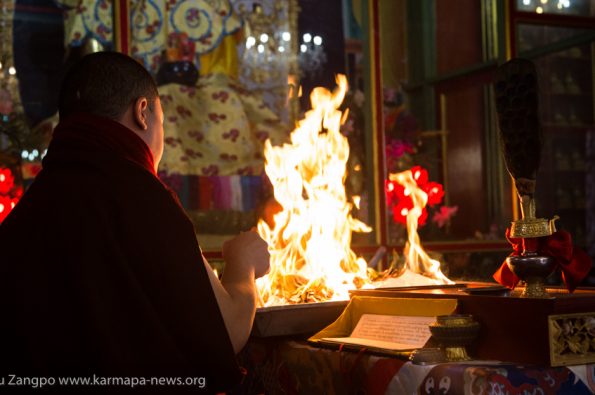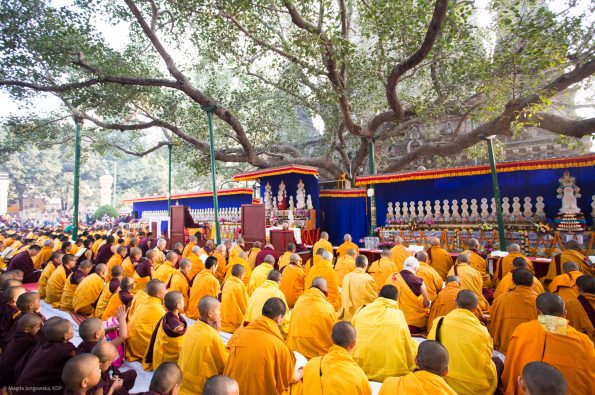A group of Mr Shiah’s followers take refuge
On January 21 Mr Shiah brought a small group of his followers to His Holiness Karmapa’s hotel room for a private refuge ceremony.
Before transmitting the Refuge Vow, His Holiness gave a short explanation of the meaning and importance of taking refuge in the Three Jewels:
The Refuge Vow is very very important, because it is like the very first step on the Buddhist path, and so it really defines one’s intention, as well as the means we use to realise that intention. Taking refuge in the Buddha implies that one wishes for a great result, meaning that one is not satisfied with a personal liberation but seeks for liberation for all. What that does is that by taking refuge in that way one automatically accumulates limitless merit, and at the same time limitless wisdom. To reach that goal, to begin with we must utilise the dharma, the methods and teachings of how to accumulate merit, how to accumulate wisdom – so that is why we take refuge in the Buddha dharma. And then we also take refuge in the sangha: the sangha in terms of the gathering of realised bodhisattvas, such as Avalokiteshvara, Manjushri or Tara, but also the sangha in terms of the community of practitioners like ourselves: basically when there is an idea of renunciation with clarity, that is already the beginning of sangha.”
His Holiness then explained that when it comes to bodhicitta there is no limit to what we should aspire to:
Normally in life, greed – and in most cases even ambition – are things we need to slowly renounce. But while generating your qualities, such as bodhicitta, you need to be very ambitious, almost greedy, telling yourself, ‘I want to take on all sentient beings.’ You are not satisfied with liberating just a few sentient beings, but you want to liberate all the countless multitudes of them, and at the same time you develop great confidence and conviction: ‘I can do it’.”
















